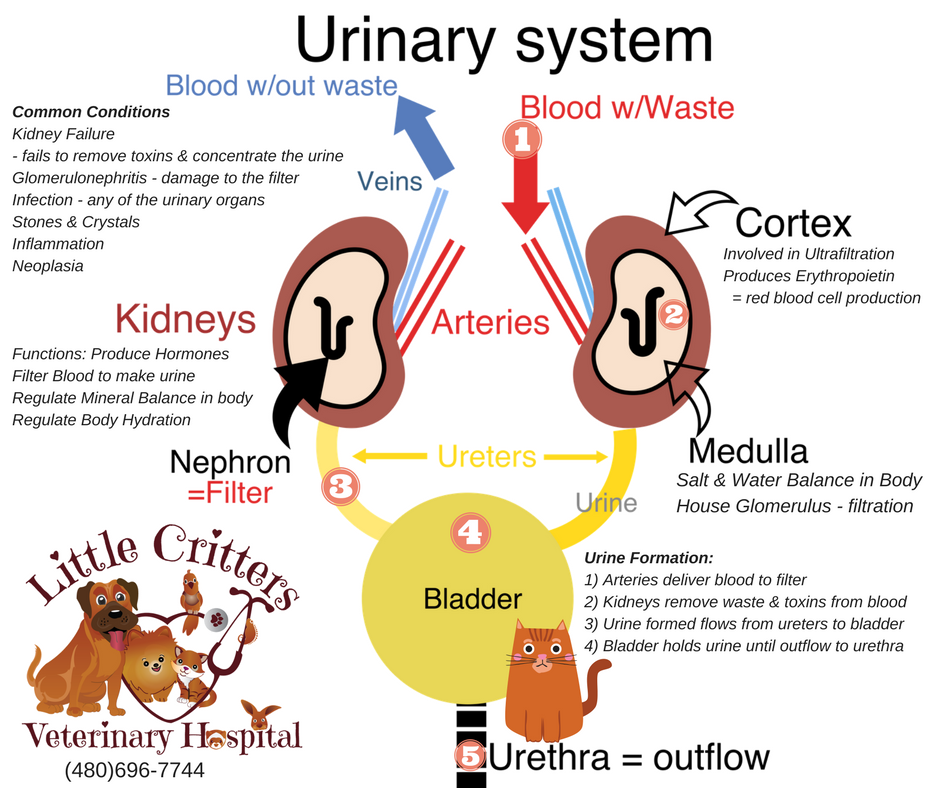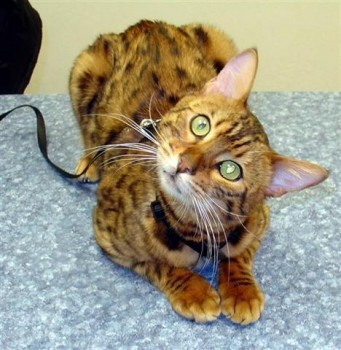|
Feline Wellness Care
We at Little Critters Veterinary Hospital strive to always be a cat-friendly and we follow fear free practices. We utilize the recommendations of the American Association of Feline Practitioners to provide our cats with the best possible health and quality of life.

Our feline wellness care program at Little Critters Veterinary Hospital is designed to keep your kitten, adult cat and senior feline healthy through high-quality preventative veterinary care. A bi-annual wellness exam is recommended for every adult and senior cat, but we may request to see kittens and senior cats more frequently.
Too often, cats are the forgotten patient as they are often thought of as self-sufficient and don't show any signs of disease until late in the disease process. We understand that needs of our feline patients and work hard to provide a fear-free experience to allow our kitties, adult and senior cats their needed bi-annual examinations. Our goal is to keep them healthy with longevity and great quality of life. By examining your precious cats on a consistent basis and addressing problems, early we are very successful in this goal.
Caring for your cat includes:
Bi-Annual Wellness Exams
Bi-annual wellness exams helps us, together, determine the health of your cat. Animals can show similar signs of illness with many different diseases, but there are some signs of disease that are commonly seen especially in older cats or cats with specific diseases. As always, it is important to have your individual cat examined by us and to follow our recommendations.
During your cat's wellness exam, your cat will receive a full physical examination and visual dental exam. We form an individualized wellness care plan for your cat that caters to your cat’s individual needs. On the day of your cat’s appointment, we ask that you bring your cat in a carrier.
Adult cats comprise the largest category and can have the most diverse illnesses based on their history, diet and environment. Typical signs of problems include: vomiting, trauma, skin abscesses, decreased appetite, straining to urinate, urine marking in the house, hiding or lethargy. Adult cats are usually more resistant to viruses (due to previous vaccines) and parasites, but we see problems such as dental disease, urinary tract infections, organ disease, inflammatory bowel disease, allergies, behavioral issues, foreign bodies, ear and eye infections and much more. It is impossible to list all potential problems, so the safest course of action is to have your cat examined yearly by us and be examined at the first sign of illness.
Adult cats are often the forgotten group as we just expect them to remain healthy. However, just as adult people can become ill, so can adult cats. The best recommendation we can give is to have a regular annual vet exam for all adult cats and pay close attention to your cat’s normal behavior and activity. Frequently, the only sign of illness in a cat is a subtle change in behavior and perhaps less social interaction with more sleeping or hiding. This seems to be especially true for periodontal and urinary diseases.
Your cat’s bi-annual wellness exam is also an excellent time for you to ask us any questions or concerns you may have about your pet’s health.
Vaccinations and Parasite Control
In young animals viruses and parasites are the most common problem we encounter. The best way to protect your cat is to vaccinate early and completely. Many people don’t realize that, depending upon the cat’s age when first vaccinated; he or she will require at least one booster vaccine to actually become protected. Kittens will also commonly have worms that can potentially be infectious to children (rare) and we recommend that all young animals be treated for roundworms and hookworms to eliminate this risk. And ear mites are occasionally seen as thick clumps of brown debris in the ears. Ear mites are not infectious to people but can be transmitted to other kittens and puppies.
Core vaccines are defined by the American Animal Hospital Association and the American Association of Feline Practitioners.
Core vaccines for cats at the time of publication are as follows:
- Feline panleukopenia (FPV)
- Feline herpesvirus-1 (FHV-1)
- Feline calicivirus (FCV)
Non-core vaccine are offered based on pet's lifestyles and at a discount for Free Vaccines for Life members

Dental Evaluation
Regular preventive dental care keeps your cat’s teeth and gums healthy. Dental disease can also be a problem in older cats and many will require yearly dental cleaning. All types of dental disease occur in cats, but a common one at any age is called cervical line lesions. These are little craters formed in the teeth, often at the gum line, that result in inflammation and pain. Teeth with CLLs should be extracted. We also see tooth loss and abscess formation with pronounced dental disease. And finally, some cats develop a condition of severe inflammation (Gingivitis/Stomatitis) involving their gums and oral cavity and these pets must be medicated and treated aggressively to control their discomfort.
In addition to the services provided at the hospital, we strongly recommend at-home dental care, and we can also discuss how to properly care for your cat’s teeth and gums at home.
Nutrition & Exercise
Cats have different nutritional needs during different stages of their life. Many commercial diets are fortified with additional nutrients and supplements to encourage health. In some cases, a prescription diet will be required depending on any health issues your cat may be having. During every exam we will make sure your cat has not gained a significant amount of weight as this may indicate a possible health issue. We will review your cat’s current eating habits to ensure they have a healthy, balanced diet to maintain the best health for your pet. We will also discuss play and exercise to make sure your cat is getting enough physical activity.

Cat Health Links:
|